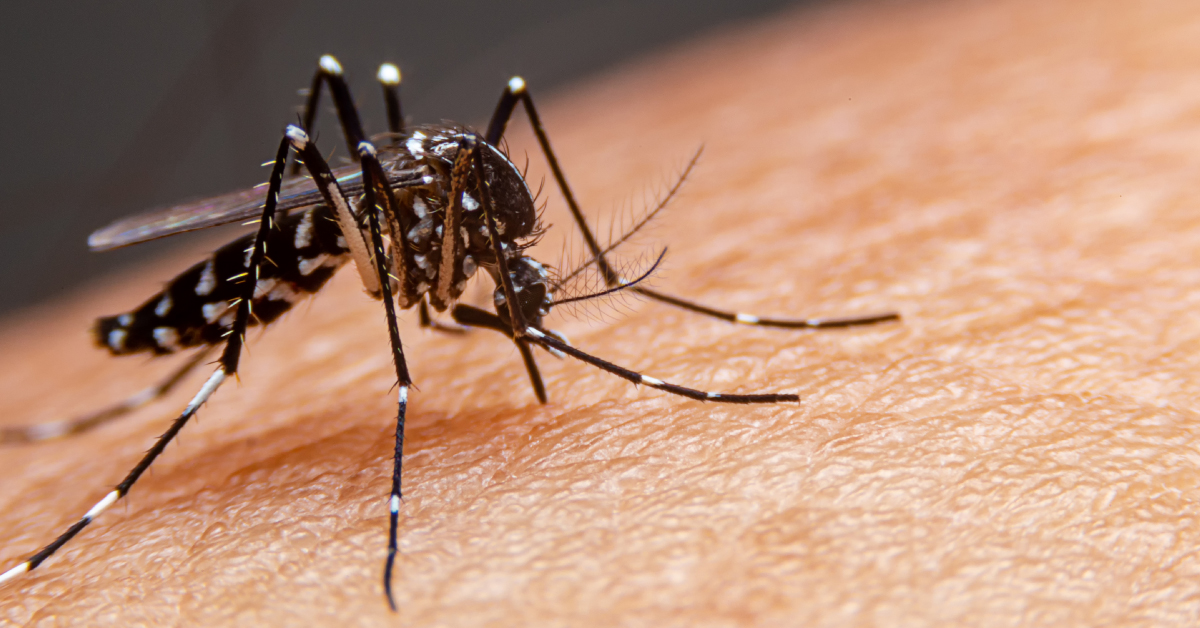Preventing Mosquito-Borne Diseases

Over the past few years, we have all experienced how severe zoonotic diseases – diseases carried by animals and passed on to people — can get. Did you know that 60% of new infectious diseases in humans come from animals?
Read on to know about the risks of mosquito-borne diseases.
Types of Mosquito-Borne Diseases
Mosquito-borne illnesses are diseases caused by mosquitos that carry viruses, parasites, or bacteria transmitted to people.
Here are some of the most common types of mosquito-related diseases:
- West Nile Virus
- Zika virus
- Chikungunya virus
- Dengue
- Malaria
First, the person usually notices the mosquito bite because it’s itchy. Then, they start to get uncomfortable headaches, muscle pain, and fever. From there, they could exhibit uncomfortable signs like a rash, vomiting, or diarrhea.
Identifying and Treating Mosquito Borne Diseases
How do you identify a mosquito-borne disease? It’s very difficult to pinpoint these types of illnesses, since bites often go unnoticed. Even when they are noticeable, we rarely make a connection between a bug bite and falling ill.
To diagnose a mosquito disease, your doctor may order urine or blood tests. Testing should happen as soon as possible. If you suspect a mosquito made you sick, get tested as soon as possible.
Some signs and symptoms may include:
- Headache
- Fever
- Joint and muscle pain
- Vomiting
- Rash
- Diarrhea
A lot of mosquito-borne diseases do not have specific treatments. The treatment varies depending on what you get diagnosed with. Some diseases, like Chikungunya and Zika, can’t get treated with traditional medicine. Instead, you’ll have to rely on paracetamol and rest. The doctors will treat the symptoms and will be on the lookout for other issues that may surface.
Preventing Mosquito Borne Diseases
Since there aren’t specific treatments for many mosquito-borne illnesses, can we prevent them? The short answer is — yes!
The best prevention method is to wear protective clothing. It’s also a good idea to use an insect repellent when outside. Do your best to never let stagnant water sit. Otherwise, mosquitos will use it to breed.
Currently, there aren’t any vaccines proven to work against most mosquito-borne diseases. Scientists are working hard, though, to create a vaccine against mosquito saliva.
The CDC is currently experimenting with GMO mosquitos. This breed targets and eliminates mosquitos that could carry deadly diseases.
Staying Healthy
Mosquito-borne diseases consistently wreak havoc across the globe. While new ways of preventing outbreaks are in the works, we still need to remain prepared. If 2020 and 2021 have taught us anything, it’s that we need to focus on our collective health.
Were you recently bit by a mosquito? Are you experiencing worrisome signs and symptoms? Don’t hesitate to visit your local Corpus Christi emergency room for treatment. The sooner you seek out care, the better chances you have at a positive outcome.
Sources
“Zoonotic Diseases,” Centers for Disease Control and Prevention, https://www.cdc.gov/onehealth/basics/zoonotic-diseases.html
Genetically Modified Mosquitoes. (2021, June 28). Retrieved from CDC: https://www.cdc.gov/mosquitoes/mosquito-control/community/sit/genetically-modified-mosquitoes.html
Rozenbaum, M. (2020, July 6). Increase in Zoonotic Diseases. Retrieved from Understanding Animal Research: https://www.understandinganimalresearch.org.uk/news/research-medical-benefits/the-increase-in-zoonotic-diseases-the-who-the-why-and-the-when/
“Preventing Mosquito Borne Disease,” Minnesota Department of Health, https://www.health.state.mn.us/diseases/mosquitoborne/prevention.html


